If you’re a company planning to offer equity to anyone (employees, founders) in the US, then it’s likely you’re going to need a 409A valuation. Yep, even if your company is based outside the US, if you make an equity grant to anyone in the US, you'll need a 409A valuation.
Start-up founders & CFOs are fast realising how early stage 409A valuations completed by quick cookie cutter approach often result in inflated option prices and disgruntled shareholders and employees. In this guide, we will deep dive into the world of 409A, how it works, what it means for private companies and startups, and how to get it done.
Understanding 409A valuations
What is a 409A valuation
409 valuation is an assessment that determines the fair market value (FMV) of a private company's common stock in compliance with IRC (Internal Revenue Code) section 409A. It essentially determines how much it costs to buy stock or exercise options in your company. It sets the strike price any option-holders must later pay to gain ownership of their stock.
In short, a 409A valuation is an objective assessment the value of your startup cake, so that everyone involved in the transaction can have a better understanding of its worth.
Simplifying 409A
Jason Atkins and Matt Secrist discussed 409As in the context of stock options. Tune in to episode 5 of Startup Equity Matters.
What is the purpose of a 409A valuation
From a compliance perspective, the IRS requires private companies to report how much they pay for stock options when they’re granted or transferred. This helps them ensure that everyone is paying their fair share of taxes on those stocks.
Beyond complying to the laws of the land, getting your 409A valuation done also makes good business sense. An accurate assessment of your company's value gives you better insight into how much money it’s worth, which lets you make better decisions about the future.
Other benefits include:
- Establishes fair market value. A 409A valuation helps to ensure that the value assigned to equity awards is fair by determining an independent and objective market value for your startup’s stock or options.
- Avoid tax penalties. Without an FMV established through a 409A valuation, founders may be subject to hefty tax penalties on the equity they receive.
- Legally compliant. 409A valuations help ensure that startups comply with IRS regulations, protecting against potential legal issues and penalties.
- Improved investment decisions. A 409A valuation is an excellent way for investors to make more informed decisions about investing in a startup by providing an objective evaluation of its value.
- Raising startup capital. If you ever need to raise capital or attract new investors, having a 409A valuation done ahead of time will make the process smoother and faster, two things new startup owners always like to hear.
By obtaining a 409A, startups can protect themselves from potential legal and financial risks while also gaining valuable insight into the true market value of their company’s stock or options.
This helps both founders and stakeholders have greater confidence in their equity awards and ultimately helps to reduce the risk of unexpected penalties.
When is 409A valuation required
You need a 409A valuation if you plan to offer equity to employees. You might already have completed a valuation but unless it’s compliant with the 409A tax rules, recipients of stock won’t be eligible for tax concessions. So make sure the 409A valuation is completed before you issue your first stock options.
- Before granting stock options
- After raising a round of capital
- Once every 12 months (or after a material event, i.e. a capital raise), or
- If you’re approaching an IPO, merger, or acquisition
The important thing to know with 409A is, it can be costly for the stock option holders if you get this wrong.
The tricky thing with 409A is, unlike a lot of US and other countries' tax code provisions, the penalties are actually on the employee, the participant, not the company or the employer. Under 409A, if you violate those rules, it's actually a 20% excise tax penalty payable by the employee.
—Matt Secrist
This can be sort of the messy situation. You're well intended to incentivize employees, but if you don't follow these rules, not only are they including money amounts in their income before the wage piece, they're also having an extra tax bill on top of it. So it's kind of a double whammy that they wanna avoid.
The good news is, while it used to be that these 409As are extremely expensive and complicated, most of the good cap table providers and law firms will have a nice, simpler, and much more affordable solution, including Cake. We have that built in, so it's not that hard anymore.
—Jason Atkins
Cake offers fast, audit-proof 409A valuation which we have developed with our legal partners, giving you one less thing to worry about when setting up your stock option plans. Read more about Cake's fast 409A valuation.

409A Valuations, simplified
Cake is on a mission to help startup founders simplify issuing equity anywhere in the world. And with 409A valuations an important step in successfully setting up equity in the US, we made sure we got this one covered for you too.
Looking for a fast, compliant 409A valuation? You can add-on 409A to your growth plan! Our process is trusted and transparent, so you can confidently begin rewarding employee stock options.
The Cake platform is ready to make your equity management pain free with workflows, cloud-based cap tables and best-practice legal templates.
409A valuation for startups
Importance of 409A valuation for startups
If you are operating as an early stage company (which is likely as you have come to us at Cake), a 409 valuation reduces the tax penalties that shareholders would otherwise have to pay. Getting a 409A at startup can clarify equity terms and potential tax implications.
A 409A valuation helps provide that assessment and can serve as a baseline for future valuations should the company need to raise more capital or restructure its equity offerings in the future.
In addition, having an independent third party determine the value of stock options also provides additional credibility when negotiating with potential investors. Investors want assurance that early stage companies are not overvaluing their own equity, and 409A gives them that reassurance.
Plus, it shows investors that founders have taken necessary steps to ensure compliance with IRS regulations regarding employee compensation plans. For startups looking to sweeten their equity offerings, a 409A valuation is an essential ingredient.
409A valuation and stock options
Most early stage companies apply an equity compensation strategy when building their startup teams. Stock options and 409A valuations are two important concepts to understand if you want to expand or hire in the US. The two are closely related and must be considered in tandem when setting up a company’s equity compensation plan.
The exercise price of a stock option is the amount an employee pays to purchase a share of the company’s common stock at its fair market value. This is determined using a 409A valuation, which must be completed before any stock options can be issued.
The 409a valuation ensures that all employees are taxed fairly on their gains from exercising their 409A stock options by making the exercise price equal to or greater than the value of a share at the time of issuance.
It also helps ensure that employers are not underpaying taxes on employee gains from stock options. For this reason, it’s important for employers and employees alike to be aware of these concepts when setting up an equity plan.
With this knowledge, you can ensure that all employees are taxed fairly on their gains from stock options and that your company is compliant with applicable federal income tax and laws.
Cake helps startup founders and leaders issue equity to employees in the US and anywhere in the world. We partner with legal experts (including 409A valuation experts) to help Cake users secure their 409A fast, easy, and with confidence. Know more.
409A How-tos
How to get a 409A valuation
There are three ways to get your 409A valuation report.
Do it yourself
- Advantage: This is the most cost-effective option, as you can find online resources to help guide you through the process.
- Disadvantage: This approach requires significant time, research and effort to accurately assess your company’s value. If you are unfamiliar with the methodology or tax implications associated with 409A valuations, this may be an overwhelming task for one person to undertake.
Hire a firm or a valuation provider
- Advantage: A valuation firm will have experience producing 409A valuation reports and understand all of the complexities that come along with them. This gives you the peace of mind that your report will be accurate and compliant with all IRS regulations.
- Disadvantage: Professional firms can be expensive, so this is not an option for those on a tight budget. Additionally, it may take longer to receive your valuation report as these firms often have high demand and backlogs of work.
Use a software
- Advantage: Using software specifically designed for 409A valuations can help save time by automating certain process aspects, such as data input and calculations. It can also guide you through any questions you may have and provide you with a detailed analysis of your company’s value.
- Disadvantage: Some software packages require the user to understand 409A valuations to accurately use them.
Cake's expert 409A valuation reports are produced by seasoned appraisers who have worked with top startups and global enterprises. All 409A reports are IRS, audit, SEC review proof and have been approved by the Big Four audit firms. Know more.
409A valuation requirements
A successful 409A report requires thorough documentation and data collection from the company, so it's essential to be aware of all necessary documents before starting your process, such as:
- Detailed company history
- Financial statements for the last 3 years
- Information about competitive market participants (including financials)
- A summary of any recent financing rounds, such as venture capital investments or loans
- Detailed information about ownership and voting rights in the company
- Up-to-date financial projections
- Existing employment agreements related to equity compensation plans
- Valuation of assets owned by the company and their respective current fair market value estimates.
- Your latest cap table
- Estimates of the number of options they intend to issue in the next year based on their hiring strategy
- Evidence of any significant occurrences which may have had an impact on the worth of its stock since the previous 409A valuation
- Any potential liquidity events that could occur, such as a sale of the company, an initial public offering (IPO), or other similar transactions.
Other 409A essentials
409A valuation refresh
A valuation refresh is an updated 409A report that is done when the fair market value of your company’s stock changes substantially from the original estimation.
The frequency of refreshes depends on how quickly the value of your company’s stock is changing and how much it has changed since the last 409A valuation. Generally speaking, if you have a rapidly growing startup, you should be doing a new 409A at least every 12 months to ensure accurate tax treatment for yourself and your employees.
It's also important to note that each 409A valuation report will remain valid for up to 12 months – and stock option grants made within that time frame will be subject to the same tax treatment as outlined in the report.
409A valuation safe harbor
To ensure your company adheres to the proper valuation and avoids penalties, it needs to be deemed a status of ‘safe harbor’. In simple terms this means you are working on ‘safe ground’, and the IRS reognizes your company as being valid.
The 409A valuation safe harbor, which was created by the Internal Revenue Service (IRS), provides a way for startups to determine the value of their stock options and other forms of equity compensation. It ensures that the employee stock options are valued accurately and consistently during issuance. It also helps entrepreneurs avoid potential fines or penalties associated with miscalculations in the values assigned to their equity awards.
When a company applies for safe harbor, it must provide the IRS with a detailed report outlining its stock's estimated value and other equity awards. An independent third-party valuation expert must prepare this report.
The valuation expert will consider several factors when determining the value of the company’s equity awards, including its current financial performance, projected future earnings, and any applicable market trends or conditions.
Cake's 409A experts valuation reports are produced by seasoned appraisers who follow safe harbor standards and employ established valuation techniques. Sign up and see for yourself.
Common mistakes to avoid
First off, make sure you don't skimp on quality. Quality does matter when it comes to 409A valuations, so it’s important to find qualified professionals with experience in the space.
Look for someone who understands the nuances of private company valuation methods and can provide you with reliable data and analysis.
Another mistake to avoid is basing your 409A valuations on outdated information. It's important to ensure that the valuation report uses current data and considers recent events that may have affected your company’s value, such as investments or new products/services.
Finally, don't forget about documentation! Make sure you document everything related to your 409A valuations – from assumptions made during calculations to market conditions and other factors.
This will not only help you be prepared for any potential audits but also provide a helpful reference point if you need to review your valuations down the line.
409A costs
How much does a 409A valuation cost
The cost of such valuations will vary depending on the size and complexity of your business, but you can generally expect to put a 409A valuation cost somewhere between $1000 and $25.000. Here's a deep dive on how much a 409A valuation costs.
The real cost of 409A valuation
If you fail to properly conduct a 409A valuation, there may be a higher price to pay.
For startups, it’s necessary to ensure that your 409A valuation up-to-date and accurate.
Inaccurate valuations can lead to many problems down the line, such as difficulty raising capital or creating major discrepancies between what shareholders expect to receive compared to what the company actually has valued.
Once again, keep in mind if your valuation falls outside of the safe harbor, you may incur penalties. This could require any remuneration postponed from the present and past years to be taxed instantly. You could also be responsible for paying any Interest accumulated on the revised taxable amount plus an extra tax of 20 per cent on all delayed wages.
Definitely, something you want to avoid!
Having an accurate 409A valuation in place helps protect a startup by setting clear boundaries for outside investors and ensuring they are not overpaying when investing in the company. By doing so, founders can also ensure that their shareholders receive the fair value they expect.

Get fast, audit-proof 409A valuations by our experienced partners
Since 2014 our valuation experts have been developing processes to deliver a draft 409A report in days, after receiving all the required information.
✅ 3 business day turnaround
✅ Highly experienced team of analysts
✅ Peace of mind. Discuss together in detail
This article is designed and intended to provide general information in summary form on general topics. The material may not apply to all jurisdictions. The contents do not constitute legal, financial or tax advice. The contents is not intended to be a substitute for such advice and should not be relied upon as such. If you would like to chat with a lawyer, please get in touch and we can introduce you to one of our very friendly legal partners.













